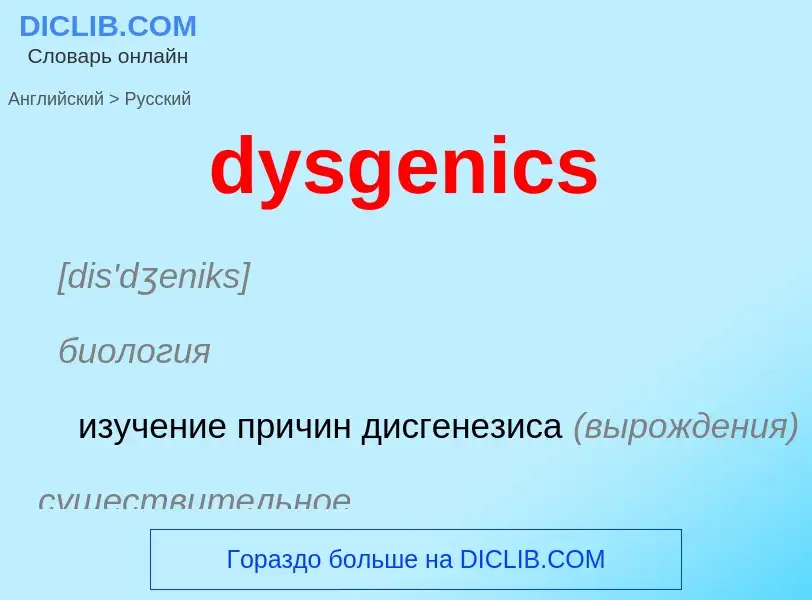Übersetzung und Analyse von Wörtern durch künstliche Intelligenz ChatGPT
Auf dieser Seite erhalten Sie eine detaillierte Analyse eines Wortes oder einer Phrase mithilfe der besten heute verfügbaren Technologie der künstlichen Intelligenz:
- wie das Wort verwendet wird
- Häufigkeit der Nutzung
- es wird häufiger in mündlicher oder schriftlicher Rede verwendet
- Wortübersetzungsoptionen
- Anwendungsbeispiele (mehrere Phrasen mit Übersetzung)
- Etymologie
dysgenics - Übersetzung nach russisch
[dis'dʒeniks]
биология
изучение причин дисгенезиса (вырождения)
существительное
биология
изучение причин дисгенезиса (вырождения)
[dis'dʒenik]
общая лексика
дисгенический (ведущий к ухудшению наследственных признаков)
вырождающийся
способствующий вырождению
прилагательное
общая лексика
генетически опасный
дисгенический
Definition
Wikipedia
Dysgenics (also known as cacogenics) is the decrease in prevalence of traits deemed to be either socially desirable or well adapted to their environment due to selective pressure disfavoring the reproduction of those traits.
The adjective "dysgenic" is the antonym of "eugenic". In 1915 the term was used by David Starr Jordan to describe the supposed deleterious effects of modern warfare on group-level genetic fitness because of its tendency to kill physically healthy men while preserving the disabled at home. Similar concerns had been raised by early eugenicists and social Darwinists during the 19th century, and continued to play a role in scientific and public policy debates throughout the 20th century. More recent concerns about supposed dysgenic effects in human populations have been advanced by the controversial psychologist Richard Lynn, notably in his 1996 book Dysgenics: Genetic Deterioration in Modern Populations, which argued that a reduction in selection pressures and decreased infant mortality since the Industrial Revolution have resulted in an increased propagation of deleterious traits and genetic disorders.
Despite these concerns, genetic studies have shown no evidence for dysgenic effects in human populations.

